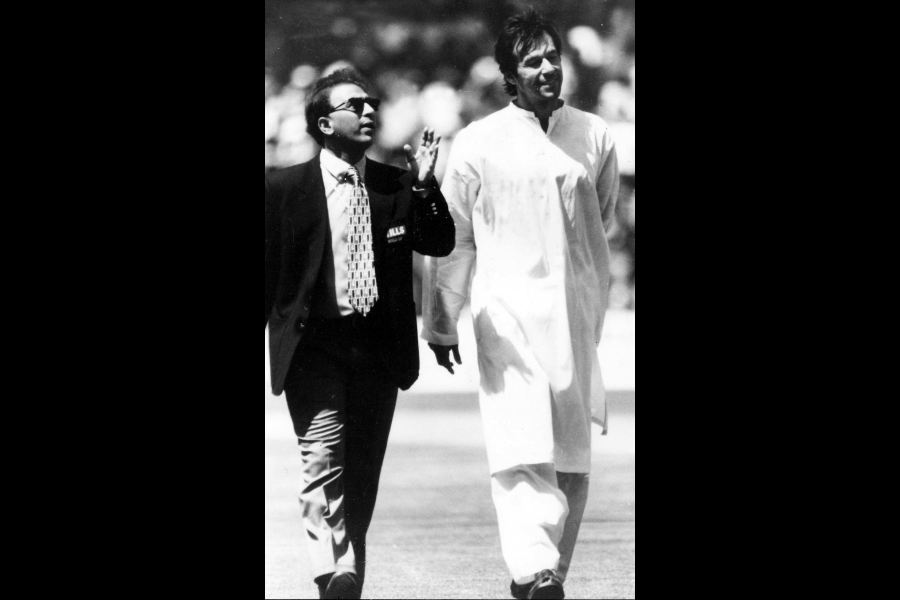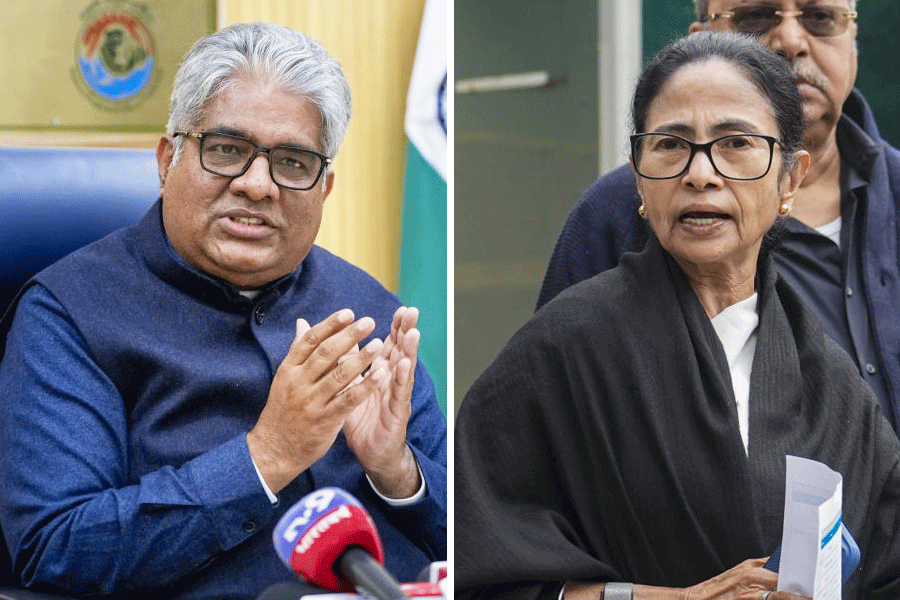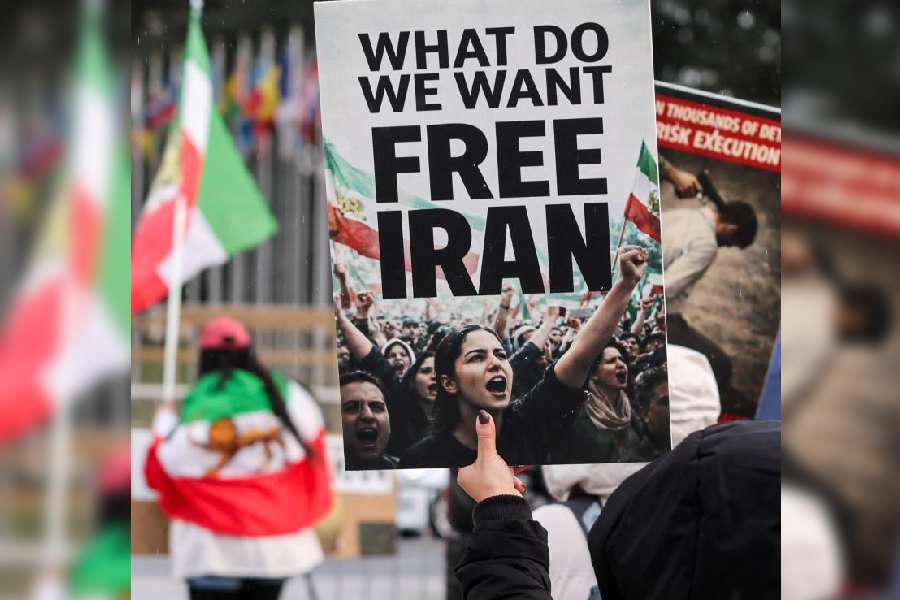Former Chief Justice of India D.Y. Chandrachud’s interview on the BBC’s Hard Talk is breaking the internet in India. The Telegraph Online provides some additional context to a few key points of the conversation.
On Modi govt’s ‘targeting’ of activists, journalists, political opponents
The BBC’s Stephen Sackur asked if the Indian courts were complicit in bending to the will of the Narendra Modi government and the ruling BJP. Chandrachud vehemently denied the allegation.
“The higher courts, particularly the Supreme Court, have sent out a clear message that we are here to safeguard personal liberties. Now, in individual cases, there may be a difference of opinion as to whether court correctly decided a particular case or didn't correctly decide a particular case. Again, there are remedies for that. But the fact of the matter is that the Supreme Court of India has been at the vanguard of personal liberty. And I dare say that this is the reason why we have so much of the faith of our people,” Chandrachud said.
Footnote: On February 14, 2024 activist Umar Khalid withdrew his pending bail application from the Supreme Court. Since his arrest on September 14, 2020, Khalid, barring the very few times he was granted interim bail for short periods, has been in the high security Tihar jail charged with UAPA and other sections of the Indian Penal Code for his speeches before the 2019 Delhi riots which left 53 dead and over 700 injured.
His bail plea hearing has been postponed multiple times. On Wednesday in Delhi high court the prosecution concluded its argument opposing the bail plea of Khalid and others.
Neither Sackur – who did bring up defamation cases against Rahul Gandhi – nor Chandrachud referred to Khalid’s continued incarceration. The former CJI did say that the Supreme Court had cleared a record number of bail applications, which he said proved that the due process of law was being followed in India.
The New York Times allegation
The BBC presenter cited a New York Times article that said Modi and the BJP leaned on the courts to protect their own and target rivals as the right-wing pushed for a one-party state.
Chandrachud said The New York Times was wrong.
“I think that The New York Times is completely wrong because they were not able to anticipate what would happen in the elections which took place in 2024, which, if at all, completely debunks the myth that we are moving towards a one-party state,” the former CJI said.
“If you look at the states in India, the states are where the regional aspirations and identities have come to the fore. And in so many of our states in India, you have regional political parties which have done exceptionally well, and they are ruling those states. So you have this wide dispersal of political power.”
Footnote: In 2023, when the plug was pulled from the Mahavikas Agadhi government with the defection engineered in the Shiv Sena and the case went to the Supreme Court, the apex court left the decision on the disqualification of the MLAs to the Speaker. In January last year, the then Maharashtra Assembly Speaker Rahul Narwekar rejected the disqualification procedure for all the 30 MLAs from both the factions.
The Election Commission of India, just before the Lok Sabha polls of 2024, gave the symbols of the Shiv Sena and the Nationalist Congress Party to the factions that had defected from the parent parties.
The case on the disqualification of the MLAs continues in the apex court though with the new Assembly sworn in last December it has lost all relevance.
Footnote 2: While Chandrachud was the CJI, the Narendra Modi government went ahead with a new law that dropped the Chief Justice of India from the three-member panel that selects the chief election commissioner (CEC) and election commissioners.
The CJI was replaced by the Union home minister.
Lawyer-activist Prashant Bhushan, who is representing the Association for Democratic Rights, an NGO which challenged the new law, has said that the government’s move undermined the Supreme Court’s earlier ruling that mandated an independent selection panel for the chief election commissioner and the two other commissioners.
The next hearing in the case is scheduled for February 19, a day after CEC Rajiv Kumar retires. Leader of Opposition Rahul Gandhi had flagged the issue on the floor of the Lok Sabha and asked what was the point of his attending the meeting – for appointing the new CEC – where Modi and Amit Shah are in majority.
On hosting PM Modi at home during Ganpati festival
Sackur told Chandrachud that the CJI greeting Modi at home for the Ganpati festival had sent a signal that he was close to the PM.
Chandrachud refuted the charge of being pro-government. As part of his rebuttal, he said: “We delivered judgments like the electoral bonds case, where we invalidated the law which was brought in by the government for electoral funding through anonymous electoral bonds. After that, we have delivered numerous judgments which have gone against the government.”
Footnote: The Supreme Court had scrapped the electoral bonds scheme – initiated by the Narendra Modi government in 2018 – months ahead of the 2024 Lok Sabha elections.
By then, electoral bonds worth Rs 16,518 crore had been released, of which the BJP – the highest beneficiary of the scheme – received Rs 6,566.11 crore between 2017-18 and 2022-23.
On September 14, 2017, the NGO Association for Democratic Reforms had challenged the government’s decision. About two weeks later the Supreme Court served notices to the Union government and the central poll panel.
The government went ahead with the scheme and issued the notification in January 2018 and also amended provisions in the law.
In October 2023, a Supreme Court bench headed by Chandrachud referred the case to a five-member constitutional bench. The hearing was concluded by the end of the month and on November 2, 2023 the constitutional bench reserved its verdict, which was finally announced on February 14, 2024.









